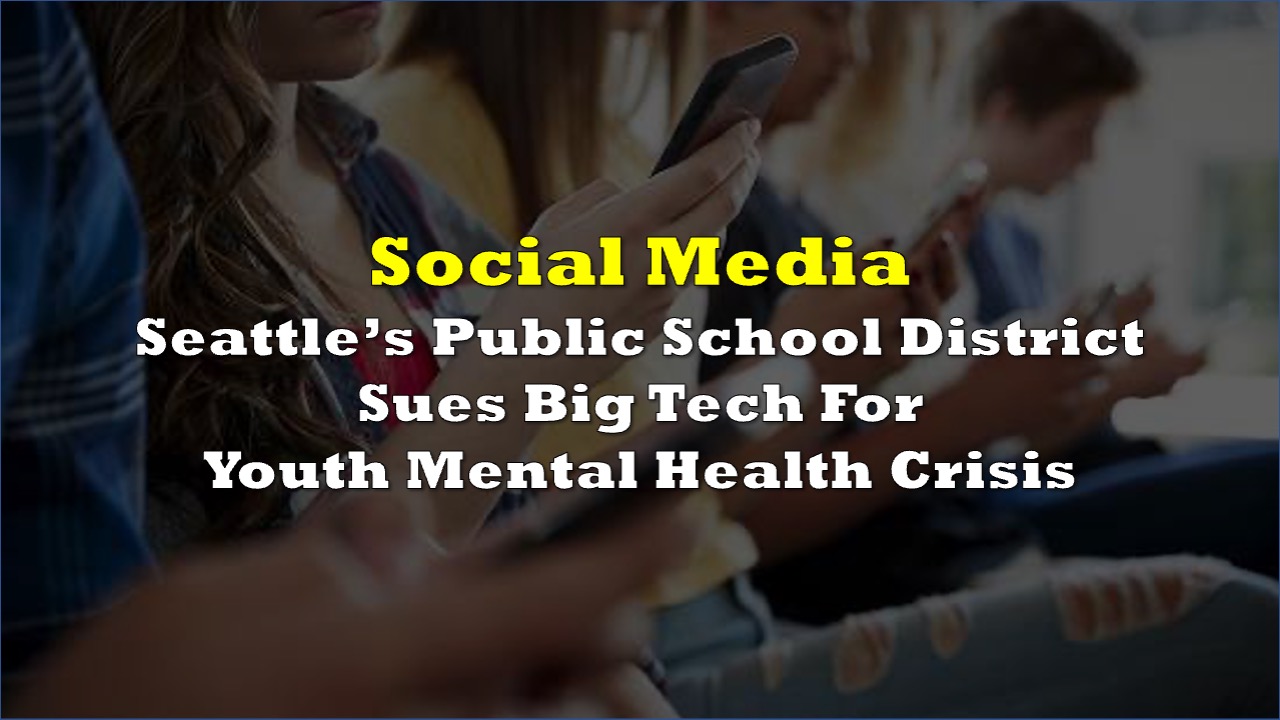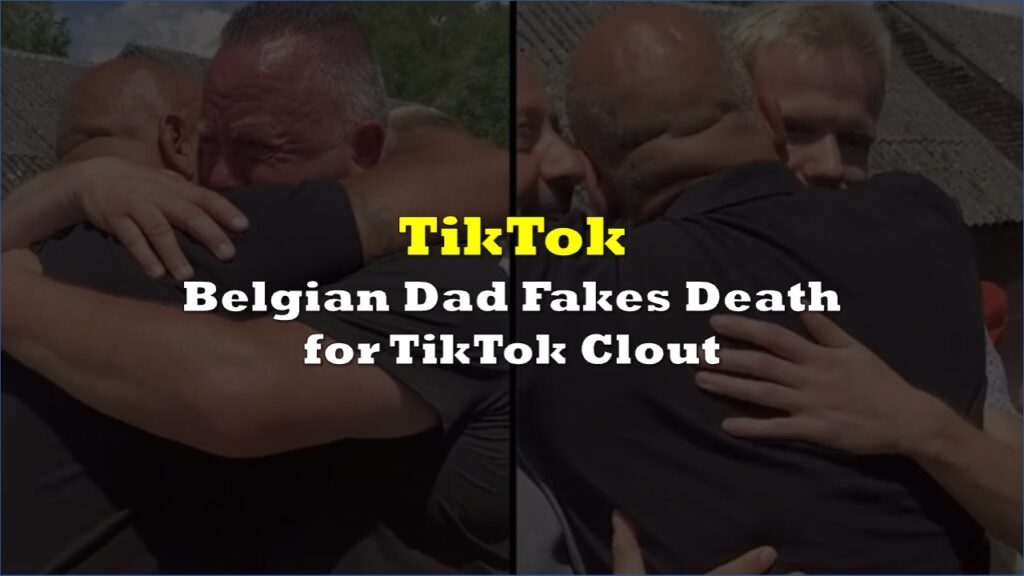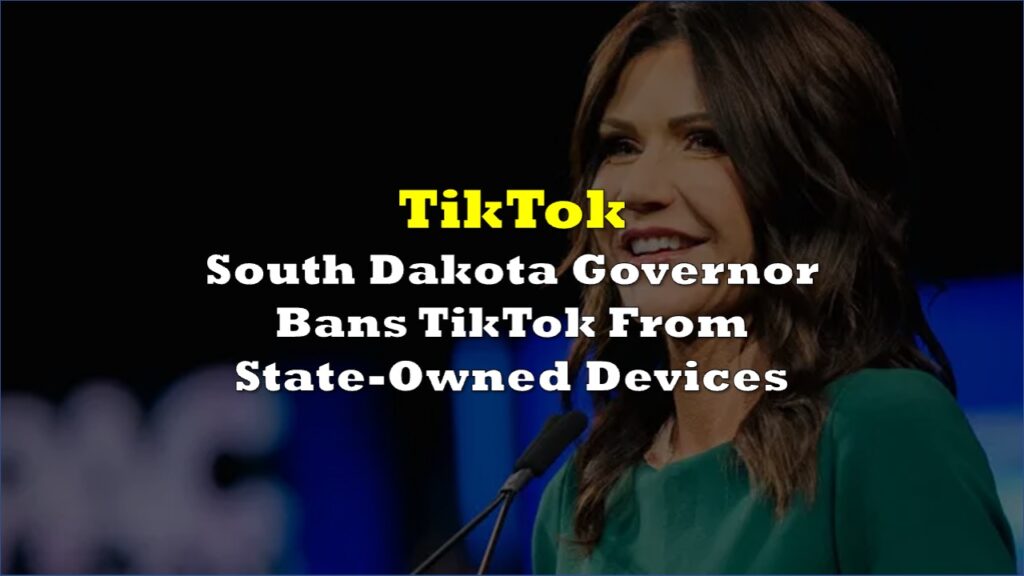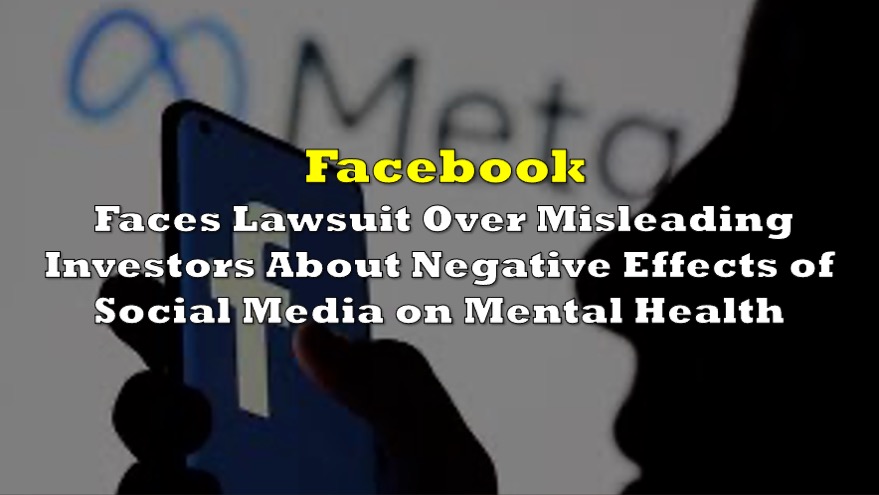Seattle’s public school district has filed a lawsuit against Big Tech companies, alleging that they are responsible for a worsening mental health crisis among the youth and are hindering the schools’ ability to provide proper education.
Seattle Public Schools filed the lawsuit against the companies behind social media giants TikTok, Instagram, Facebook, YouTube, and Snapchat on Friday. The 91-page complaint alleges that these companies knowingly designed their products to attract and hook children, and that the defendants are accountable for the worsening mental health and behavioral disorders in young people.
They have “successfully exploited the vulnerable brains of youth, hooking tens of millions of students across the country into positive feedback loops of excessive use and abuse of Defendants’ social media platforms,” the lawsuit said. “Worse, the content Defendants curate and direct to youth is too often harmful and exploitive…”
According to the complaint, from 2009 to 2019, there was an average of 30% increase in the number of students who said they were feeling “so sad or hopeless almost every day for two weeks or more in a row” that they have been unable to do normal activities.
Students that are affected perform poorly, pushing the school district towards additional measures such as employing additional mental health professionals, creating additional lesson plans that tackle the dangers of social media, and providing additional training to educators.
The Communications Decency Act — which is notably from 1996, long before the rise of social media — has a section that helps protect what it calls a “provider of interactive computer service” from civil liability on account of what third-party content on their “computer service.”
But the lawsuit, the plaintiffs explained, focuses on the defendants’ “own conduct” in their platforms, particularly how they “affirmatively recommend and promote harmful content to youth.” They are seeking compensation for monetary damages and other penalties to expand the district’s mental health resources.
Some of the companies involved in the lawsuit have said that they are trying to do their part to protect young people who use their services.
In a statement, Google (Nasdaq: GOOGL), which owns YouTube, said that the company has “invested heavily in creating safe experiences for children across our platforms and have introduced strong protections and dedicated features to prioritize their well-being,” including the ability for parents to set reminders, automatically limit screen time, and block certain types of content on their kids’ devices.
Snap, Inc.(NYSE: SNAP), owner of Snapchat, said that they “will continue working to make sure our platform is safe and to give Snapchatters dealing with mental health issues resources to help them deal with the challenges facing young people today.”
The company previously launched Here For You in 2020. It was an in-app support system available to connect users who might be experiencing a mental health crisis to expert resources. It has also introduced a setting that allows parents to monitor the accounts their children contact on the app, but without seeing the content of the messages.
Meta Platforms, Inc (Nasdaq: META), which owns Facebook and Instagram, and ByteDance, Inc, the Chinese-owned company behind TikTok, on the other hand, have yet to comment as of this writing. But TikTok recently added content controls that allow users to restrict certain content from children.
READ: House of Representatives Bans TikTok On All Official Devices
In 2021, Meta, then called Facebook, Inc, was revealed to have been actively targeting children. Whistleblower Frances Haugen showed that the company was aware that Instagram was negatively impacting teenagers’ body image, and was significantly contributing to a rise in eating disorders and self-harm. She accused the company of prioritizing financial gain over safety.
The filing of this lawsuit highlights the broader debate around the role of technology and social media in promoting mental health and well-being, and whether companies behind these platforms should be held accountable for the negative effects of their products on users.
As the case proceeds, it will be interesting to see how these issues are addressed and what the consequences may be for the big tech companies involved. And if perhaps it’s time to revisit section 230 of the Communications Decency Act.
Information for this story was found via Reuters, AP, WSJ, and the companies and sources mentioned. The author has no securities or affiliations related to this organization. Not a recommendation to buy or sell. Always do additional research and consult a professional before purchasing a security. The author holds no licenses.









